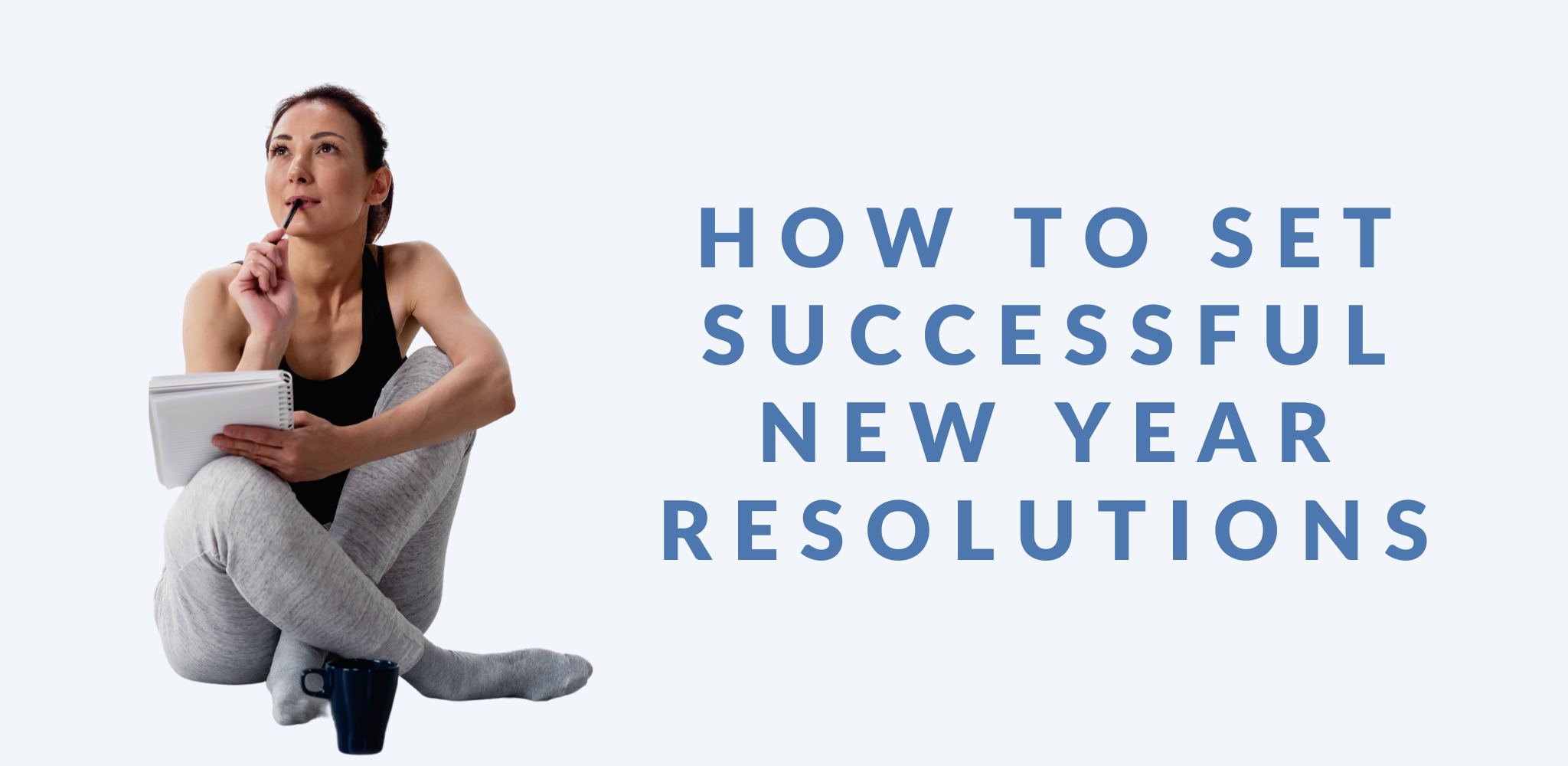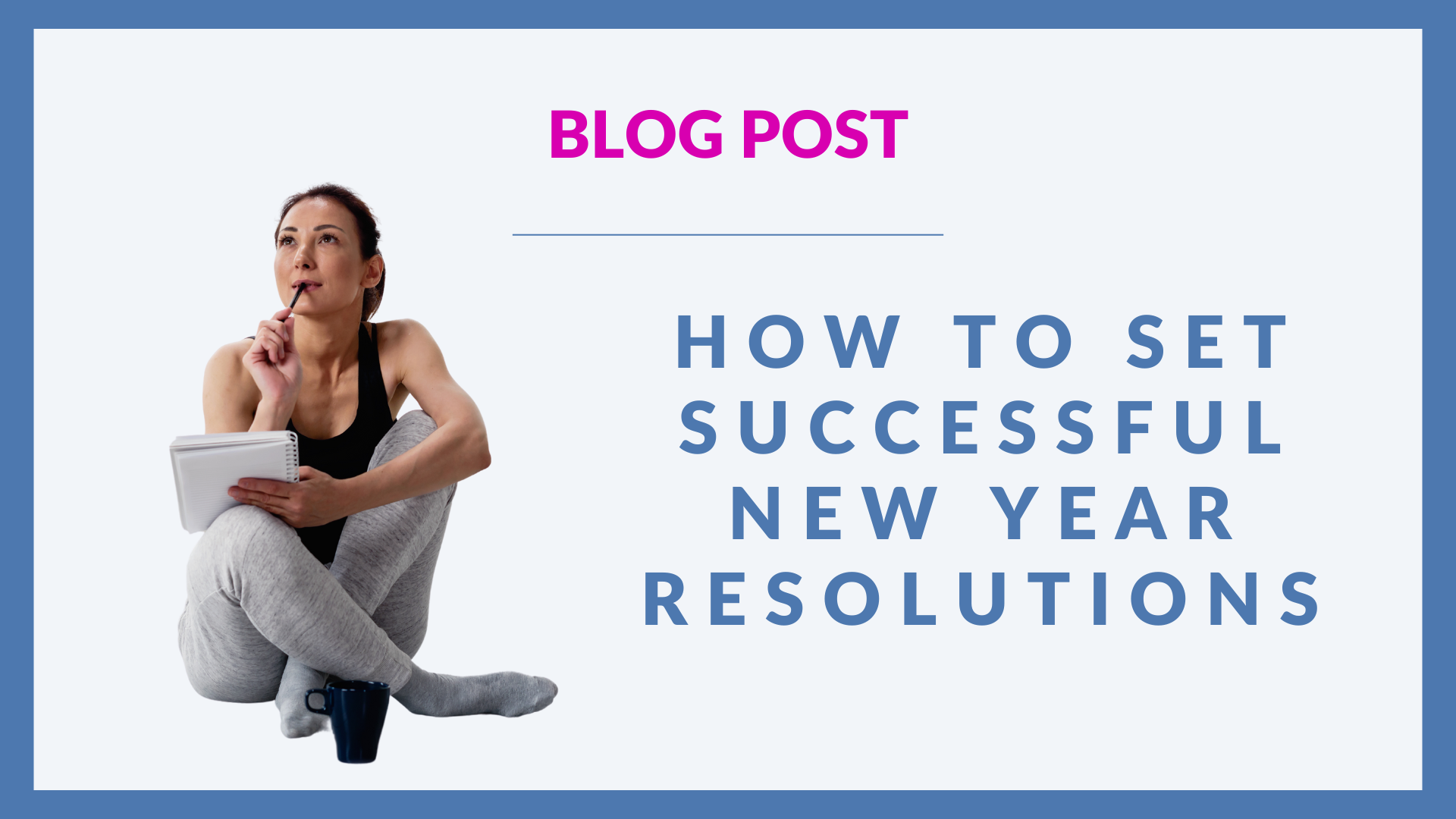
Recent Posts
- All Posts
- AuDHD Lifestyle Coaching
- Mental Health
- Neurodivergence
- Office Management
- Run Coaching
- Sports Massage
- Transformational Coaching
- Transitional Coaching
- Virtual Assistance
Categories
HOW TO SET SUCCESSFUL NEW YEAR RESOLUTIONS
We all know that Christmas is less than 4 months away. Some people may have already had at least one conversation this year about where you are going to spend Christmas Day and Boxing Day. You may even have started planning what presents to get for people.
But have you thought about how to set a successful New Year Resolution yet?
In exactly 4 months today, we will all be waking up to a brand new year and about half of us will be setting a New Year’s Resolution – the most common are health and fitness related like losing weight, joining a gym and stopping smoking, but whatever it is, less than 10% of us actually keep them.
There are many reasons that people aren’t able to follow through with their resolutions, including poor planning, unrealistic goals, no motivation and lack of money.
But in my experience, the most common reason is because we have made the wrong resolution at the wrong time for us to fully commit to it.
WHY SET A RESOLUTION
Personally, I’m not a fan of New Year’s resolutions. I have become so in tune with my needs over the last few years, that if I feel something needs to change, then I do it whenever that need arises.
In some ways I’m in awe of people who can choose a resolution at new year and stick to it as it’s not something I’ve ever been able to do!
But, in all honesty, it doesn’t matter when you want to make changes in your life. The important bit is that they are the right changes for you, for the right reasons and that you have the support you need to make these changes realistic and sustainable.
It, therefore, doesn’t need to be a new year resolution, but it does need to be a goal that is meaningful to you in a way that not achieving it makes you feel worse than carrying on as you are.
WHEN IS A GOOD TIME TO SET RESOLUTIONS
If you are someone who enjoys the challenge of a new year’s resolution, but haven’t been able to fully commit to and achieve one in the past, it may be because you haven’t spent enough time considering the changes you would like to make.
So, instead of waiting until the 1st of January – why not start thinking about it now?
What would you like to change about your life? What would you be really proud of having achieved this time next year?
For example, if your goal is to be able to walk/run 5km then getting outside while the evenings and weekends are warmer and lighter will help you cope with the colder, darker months because your body is already used to the exercise.
Then, by the time you come to setting a new year’s resolution, you are already half way there, or may even be in a position to be a bit more adventurous!
You will be more aware of how your body and mind responds to new challenges so you will be in a much better position to choose a realistic resolution that you can sensibly work towards.
HOW TO SET SUCCESSFUL NEW YEAR RESOLUTIONS
MAKE THE RIGHT CHANGES FOR THE RIGHT REASONS
Ask yourself why you want to make the change you want to set yourself.
Thinking you should and someone else telling you to make certain changes all need to be addressed/processed, but are they the right reasons for you want to make this change?
For example, comparing yourself to other people which makes you think you should change in some way. Who has told you to make this change – friends/family/society, or a healthcare professional? Do you agree with them?
Even if you do agree with them, is this change something you are ready to embark on right now? If not, then it may not be the right time to set yourself this challenge.
CHOOSE SOMETHING MEANINGFUL TO YOU
Choose something meaningful and that holds some form of emotional attachment when you think either about what you don’t like now, or how you’ll feel when you achieve your goal.
I’m not a huge fan of SMART (Specific, Measurable, Attainable, Realistic, Time-based) goals because I don’t think they take into account our feelings.
I also don’t think that it’s feasible for everyone to know how long it will take to achieve a certain goal to be able to put a timeframe on it.
Feeling a certain way about a goal, in my opinion, is a very valid way (if not more so) of knowing you have achieved what you set out to do.
By all means, add something more tangible to the ‘specific’ and ‘smart’ parts of your goal setting if that works for you, but if you don’t know what that will be, and you only know how you want to feel, then go with that.
As your goal progresses, you may find that it’s easier to visualise more typically tangible targets, as well as when you think you will reach your end goal.
I honestly don’t believe that SMART goals are realistic in every situation, especially if you’ve never done something before and have no idea what you are capable of achieving, so go with what works for you.
MAKE A PLAN
This is the bit that most people forget, or don’t know how to do, when setting goals. As Antoine de Saint-Exupéry said: “A goal without a plan is just a wish.”
A plan sets out how you are going to get from where you are now to where you want to be so that you can achieve your goal(s).
Each person’s plan will be different, depending on your goal, what skills and knowledge you already have, and your preferred way of doing things.
It may be a complete plan of actions to reach your goal, or it may be broken down into smaller, more manageable tasks, or mini goals.
It doesn’t matter what the plan looks like, as long as it has realistic actions to get you where you want to go.
CREATE SOME ACCOUNTABILITY
Whether this is someone like me as your life coach, or a friend who you regularly catch up with, having someone who can keep you accountable to what you say you are going to do is really important, especially if you are setting less tangible goals.
Knowing you are meeting with your accountability partner can help you keep on track with your plan to reach your goals.
They can also act as your cheerleader when things are going well, and help you work out how to evaluate and adapt when things are not going to plan.
REGULARLY REVIEW YOUR GOALS
I believe that it is really important to regularly review how you’re feeling, and whether things in your life are still relevant and purposeful.
This is useful for your life in general, as well as any more specific goals you set yourself, to make sure that you are still following the path that is right for you.
By continuously improving your self-awareness, you always know that you are living your best life at any given time.
At worst, it helps you identify when things may need to change.
This also helps when life takes unexpected turns – if you are in tune with your body on a daily (or at least regular) basis, then you know how to recognise when things don’t feel right.
With regular practice, you will also come to understand what your body needs to (re)regulate itself during stressful or uncertain times.
SUMMARY
It doesn’t matter when you want to make changes in your life. The important bit is that they are the right changes for you, for the right reasons and that you have the support you need to make these changes realistic and sustainable.
I’ve come a long way with this myself over the last few years and, whilst there is still so much more that I want to achieve in my life, the here and now is (mostly) as good as it can be for me right now.
NEED SOME HELP SETTING THE RIGHT GOAL(S) FOR YOU?
Whether you want to feel more confident about yourself, completely transform your life, or discover what your full potential looks like, I will help you unpick what’s not working for you, and identify who you are, rather than who you think you should be.
The first step is to book a free discovery call. This is a Teams video chat where we’ll get to know each other, talk about where you are and where you’d like to be, and see if we’re the right fit to work together.
Alternatively, if you would like to know more about how I can support you, please either send me a message or email [email protected].









